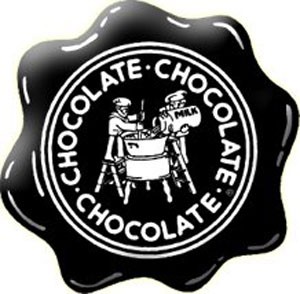Long-time local chocolatier Chocolate Chocolate Chocolate (112 North Kirkwood Road, Kirkwood; 314-965-6615) is now selling Fair Trade chocolate. Fair Trade is a nonprofit that helps make sure suppliers in places like the Ivory Coast, where Chocolate Chocolate Chocolate gets all of its cocoa, are paid a fair wage.
See also: Tour the Chocolate Chocolate Chocolate Factory! (Oompa-Loompas Not Included)
"We use so much cocoa now we study it as a commodity. We've really learned about our product and African cocoa farmers," owner Dan Abel says. "We learned that they're really not getting paid a lot of money. I said, 'We've got to do something.'"
Fair Trade basically tacks on a premium that makes cocoa and cane sugar -- Chocolate Chocolate Chocolate's biggest ingredients -- more expensive, but 100 percent of that premium goes back to the farmers. The cocoa premium of $200 per metric ton doubles the salary of the Ivory Coast cocoa farmers from $1.50 a day to $3 a day, Abel says. It was important to Chocolate Chocolate Chocolate that the suppliers would remain the same.
"We didn't have to change our recipe, the same recipe we've had for 33 years now. That was really important to us because changing our chocolate recipe is like the last thing we would ever do," Abel says. "The other part of it really is about sustainability for cocoa."
Cocoa is at its highest price ever, he says, and just a few years ago, analysts predicted that we would be out of cocoa by 2020 because of the inability to meet demand. Thanks to sustainability programs, that's no longer the case. Working with Fair Trade means that farmers have more of an incentive to grow cocoa, which of course increases the supply.
Chocolate Chocolate Chocolate's cane sugar comes from Belize, and some of the Fair Trade money is being used to combat a pest problem that was destroying the farmers' yield. With technology and education to combat the issue, the cane sugar farmers have doubled their yield. Fair Trade also develops programs in these communities like education for children and healthcare.
"That was it for us -- when we were buying a little cocoa, we couldn't make much of a difference," Abel says. "Now we're bringing in tons a week, so every week, $2, $4, $6, $8,000 is going to Africa."
Gut Check is always hungry for tips and feedback. E-mail the author at [email protected] or follow her on Twitter.
Follow @gutcheckstl


